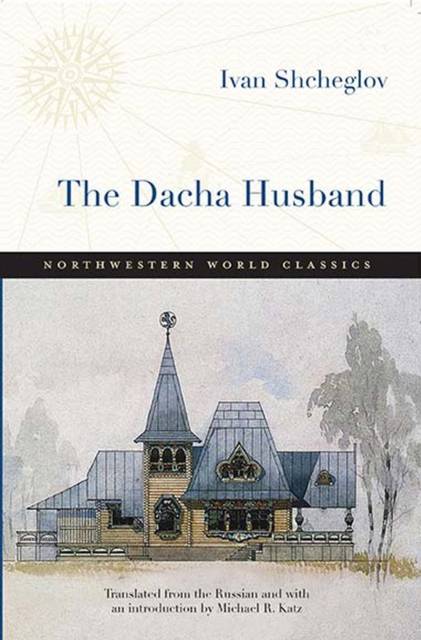
- Afhalen na 1 uur in een winkel met voorraad
- Gratis thuislevering in België vanaf € 30
- Ruim aanbod met 7 miljoen producten
- Afhalen na 1 uur in een winkel met voorraad
- Gratis thuislevering in België vanaf € 30
- Ruim aanbod met 7 miljoen producten
Zoeken
€ 29,95
+ 59 punten
Omschrijving
In addition to offering fresh editions of well-known works, Northwestern World Classics will also reintroduce to a new generation "lost classics," such as Ivan Shcheglov's 1896 The Dacha Husband (Dachnyi muzh). Despite being considered the most interesting writer of the late 1800s by no less a writer than his onetime collaborator Anton Chekhov, Ivan Shcheglov is largely forgotten in the West. In the able hands of Michael Katz, acclaimed translator of Dostoevsky, Turgenev, and Tolstoy, Shcheglov's strikingly modern style and biting satire come alive for today's readers. The Dacha Husband (a term created by Shcheglov) satirizes a type of man who came to prominence in the later part of the nineteenth century in Russia; he was typically upper middle class, was married to a materialistic woman, and commuted to work in St. Petersburg during the summer while his wife and children vacationed at the family's dacha in Pavlovsk. Among the novel's highlights is a "Convention of Dacha Husbands," in which a "small group of insulted and injured husbands gathered together, in secret from their wives, . . . for a general discussion of contemporary marital misfortunes and a search for some means to protect their human rights." The convention is unexpectedly interrupted by the wives, who arrive to retrieve their rebellious spouses. A coda informs the reader that at least one of the proposals offered during the meeting survived: the construction of a "shelter for the care of deserted husbands."
Specificaties
Betrokkenen
- Auteur(s):
- Uitgeverij:
Inhoud
- Aantal bladzijden:
- 112
- Taal:
- Engels
- Reeks:
Eigenschappen
- Productcode (EAN):
- 9780810126350
- Verschijningsdatum:
- 1/10/2009
- Uitvoering:
- Paperback
- Formaat:
- Trade paperback (VS)
- Afmetingen:
- 139 mm x 198 mm
- Gewicht:
- 131 g

Alleen bij Standaard Boekhandel
+ 59 punten op je klantenkaart van Standaard Boekhandel
Beoordelingen
We publiceren alleen reviews die voldoen aan de voorwaarden voor reviews. Bekijk onze voorwaarden voor reviews.











